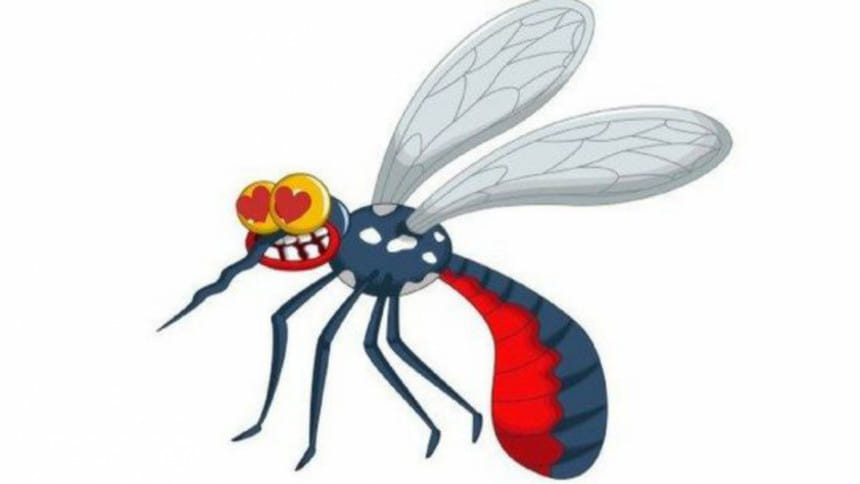Winter, dengue and STDs

Mosquitos have become our closest companions, staying by us every hour of the day, waking us up with their love bites and lulling us to sleep with the ever-familiar hum of their buzzing wings. And now that the dengue season is past us and our pesky friends are no longer disease vectors, there would seem to be no malice to this companionship, nothing worse than an itch at least. Or is there?
As it turns out, a mosquito bite—of the Aedes Aegypti or the Aedes Albopictus—can infect one with the viral disease even in the deep of winter. There is no longer a dengue season and a non-dengue season; there are just peak and off-peak dengue seasons.
Dengue is no longer an epidemic. It is now an endemic: ever present, throughout the year.
Curiously, the anti-mosquito drive over the country has seemed to have slowed down. With the onset of winter and departure of the peak dengue season, it seems complacence has crept in, allowing for mosquitos to breed again freely. This has resulted in people still getting admitted to hospitals and some succumbing to the disease. Between November 1 and 17 this year, 2,683 people have been infected with the dengue virus, as mentioned in an update by the Institute of Epidemiology Disease Control and Research (IEDCR). According to a press release by the Health Emergency Operation Centre and Control Room at the Directorate General of Health Services (DGHS) issued on November 18, 608 dengue virus infected patients were receiving treatment in various government and private hospitals in the country
"Given the right conditions, Aedes mosquitoes can breed even in winter, as late as January or even February," said Professor Mahmudur Rahman, former director of IEDCR. And they can breed in any fresh-water storage sites, including in water containers. "It is essential to clean our water storage containers in order to make sure that mosquitoes do not breed there," Professor Rahman further added. So, while the concerned authorities need to persistently continue the drive against mosquitoes round the year, we as responsible citizens must also work all through the year to keep our houses and surroundings clean.
Another factor that is affecting the increase in the number of mosquitoes is the return of the Culex mosquitoes. Culex are a common mosquito type that emerge in winter and pester us all though the cold months. The problem is the difference in the breeding nature of the Aedes and Culex. While the former breeds in fresh water, the latter breeds in polluted, stagnated water.
Drains, polluted lakes and ponds, and other dirty water bodies are the ideal breeding grounds for Culex, which means the authorities have to fight mosquitoes at two different fronts: cover both fresh and polluted water bodies in their anti-mosquito drives.
To combat Culex, while the authorities concerned can apply larvicide agents to the breeding grounds, they also need to make sure that the drains are running and dirty water is not stagnated unnecessarily, recommends Kabirul Bashar, a professor of entomology at Jahangirnagar University.
And while Culex is a menace, they are less of a threat than the Aedes. While only one single bite of an infected Aedes can infect a person with the dengue virus, it will take almost 10,000 bites of infected Culex mosquitoes to infect a person with filaria, for instance.
What is even more alarming is that having sexual intercourse with a dengue virus infected person can also transmit the disease. Yes, you have read it right, dengue is also potentially a sexually transmitted disease (STD). How come? Dengue belongs to the group of a virus called the Flavivirus, which can be transmitted through sexual contact. Another mosquito borne disease, Zika, which is known to be transmitted sexually as well, also belongs to the same Flavivirus family that causes Hepatitis.
One case of sexually transmitted dengue has been confirmed in Spain; while another likely case in North Korea has been reported. But not a single case of sexually transmitted dengue has been identified in Bangladesh. Does this mean that in Bangladesh the disease is not transmitted sexually? This is one tricky question to answer, since in Bangladesh the patients are not studied to see if the disease had been transmitted through sexual contact. Meaning, we don't know if of the 98,899 patients infected with the disease this year, any had been infected with the disease as an STD, because we have not studied them from the STD angle. We take it for granted that a dengue patient is always infected by the bite of an Aedes mosquito.
Although the rate of transmission of dengue through sexual intercourse is not very significant—probably one in a thousand cases—it is possible, and thus Professor Bashar's stress on the importance of conducting research on the STD dimension of dengue, in order to be able to explore the depth of the problem.
Dengue might also be transmitted through breastmilk of infected mothers to nursing babies. Since that possibility remains, it is essential to study these aspects of dengue transmission further for better understanding of the scenario. Apart from these, dengue virus can also be transmitted through blood and organ transfusion.
Professor Bashar suggests that usually doctors make patients aware that dengue virus can be transmitted through sexual contact and advises caution. However, it is important to raise public awareness about this issue. The government can come up with awareness campaigns through which it will inform people that dengue virus transmission is not confined to mosquito bites alone, that dengue can be transmitted through sexual intercourse, passed though breastmilk and transmitted through blood and organ transfusion.
The concerned authorities can also consider including these aspects of dengue in their dengue clinical management guideline. Generating awareness and addressing these issues directly will only lead to better management of the disease and stricter control of its spread.
With regard to anti-mosquito drives, Professor Rahman suggests exploring newer ways of controlling them, including using Wolbachia—a natural bacteria present in almost 60 percent of insects, including certain breeds of mosquito. World Mosquito Programme's research suggests that introducing Wolbachia to Aedes Aegypti mosquitoes can reduce the transmission of the viruses they carry. Why this method has not been tried yet remains a mystery though.
It is high time the concerned authorities rolled up their sleeves to expedite the anti-mosquito drives across the country and looked for more effective ways of fighting these menacing mosquitoes. Inaction and tragic myopia by the concerned authorities had already plunged the country into a dengue-induced chaos earlier this year. A repetition of this would not only be highly undesirable, but would also expose our inability to learn from past mistakes.
An inability in which we will all be culpable.
Tasneem Tayeb works for The Daily Star.
Her Twitter handle is: @TayebTasneem

 For all latest news, follow The Daily Star's Google News channel.
For all latest news, follow The Daily Star's Google News channel. 



Comments